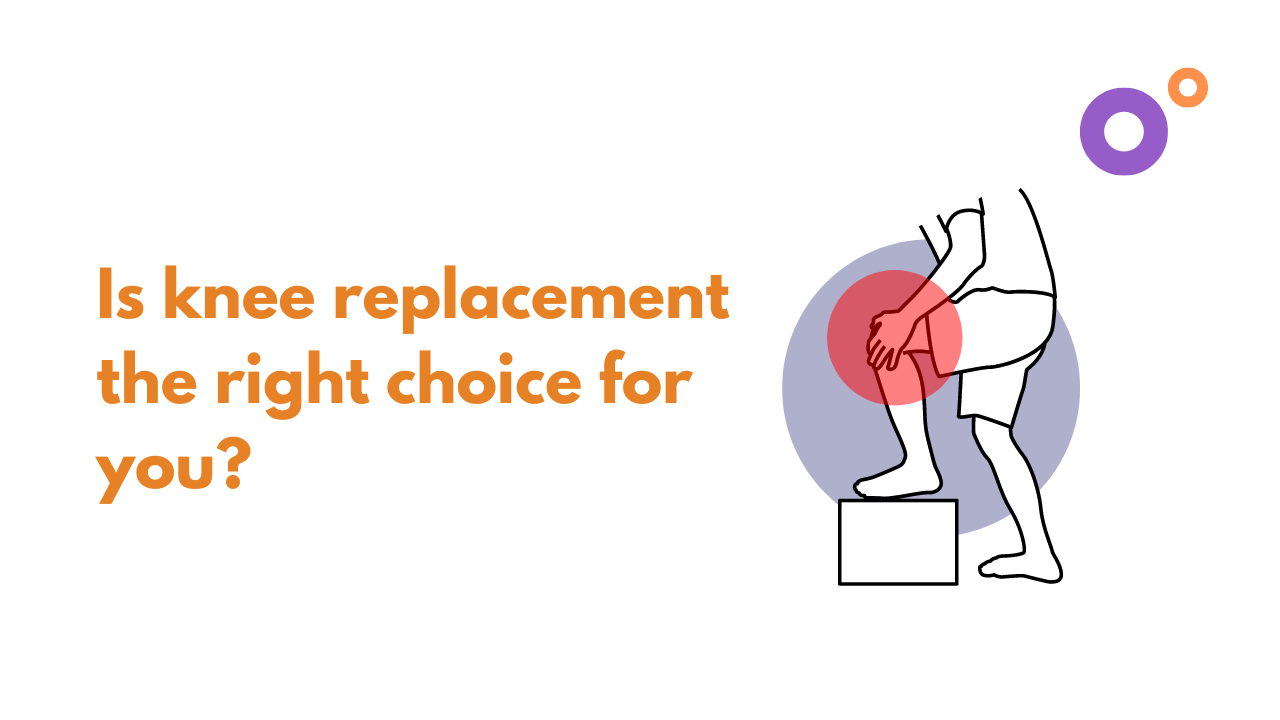
Is knee replacement the right choice for you?
Medically reviewed by

Dr.Akhil Bansal
Professor & Senior Surgeon - Orthopedics
Many people suffer from severe pain, limited function or worsening arthritis in the knee. If you have exhausted non-surgical options, like injections of pain medications and are still dealing with pain which limits the quality of your life then knee replacement might be the right choice for you.
Making this decision can be difficult but newer surgical procedures, including the use of less invasive techniques have made knee replacement surgery much easier with faster recovery. Here, learn about knee replacement at FirstCure Health.
Pain management begins from the moment you enter the operating room as we offer the surgery with spinal anesthesia (commonly known as an epidural) rather than general anesthesia. This spinal anesthesia wears off gradually, where we offer our patients nerve blocks around the joint replacement which provides 24 to 36 hours of pain relief. We also offer other kinds of medications to help relieve pain, including anti-inflammatories, nerve pain medications and even some antidepressants (these are given only when needed).
Importantly, we at FirstCure Health use the less invasive procedures which results in a smaller amount of tissue damage to the surgical area. This reduces the degree of pain post surgery.
Being active is important and our team of therapist will help you walk as early as possible after the surgery because our goal is to get patients out of bed as soon as the spinal anesthesia wears off. We will ensure that you can safely get out of bed, move from the bed to a chair and to the bathroom. The therapist will also ensure that you have enough range of motion in your new knee to begin walking with a walker right away. This is important because the more you get up and use your new joint, the faster you will recover.
Physiotherapy is an important part of recovery after knee replacement surgery and starts from the first time you get out of bed. While you are still in the hospital, the physiotherapist will check your range of motion or how much you can bend and straighten the leg.
After you leave the hospital, you will need a physiotherapist for the first few weeks to help you maintain a range of motion and help to rebuild strength in the surrounding muscles. Most people are able to walk without a walker or cane about six weeks after knee replacement surgery. Recovery is different for everyone; dependent on several factors whether you have one or both knees replaced, the condition of other joint and overall health and fitness level before the operation. Generally, most patients use a walker for the first three weeks and then transition to using a cane for another two to three weeks.
You can return to a fully active lifestyle after knee replacement surgery. It’s a gradual recovery, and everyone is different, but the bottom line is that people do return to big, active lifestyles after knee replacement surgery.
As for wound healing, thanks to less invasive procedures, incisions are usually small and closed using plastic surgery techniques. This helps the wounds heal better and also looks nice aesthetically.
Why talk to Us?
We at FirstCure have top doctors equipped with most advanced procedures at guranteed lowest cost. We will assist you at every step from booking consultations, second opinions, arranging diagnostic tests, insurance approvals and related paperwork, admission to discharge and post surgery follow up consultation.